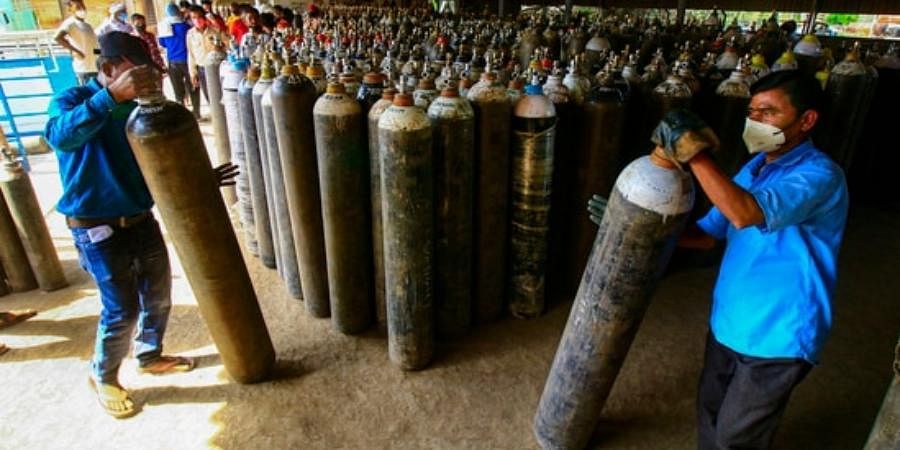Bengaluru, Jan 13: Karnataka Chief Minister Basavaraj Bommai on Thursday sought central assistance to raise the number of oxygenated beds and oxygen plants in the state.
Bommai sought the assistance today while taking part in a video conference held by Prime Minister Narendra Modi with Chief Ministers of various states over the COVID-19 situation in the country.
"I explained the measures taken by the state government to control and manage Covid. The Prime Minister appreciated the high rate of testing and vaccination in the state which is higher than the national average," the CM was quoted as saying by his office in a release.
Noting that the PM was also apprised about measures initiated to ramp up the medical infrastructure, he said, "I sought the central assistance to raise the oxygenated beds and oxygen plants."
The Prime Minister gave instructions on making all preparations based on the experience of the first and second wave of Covid, as the pandemic is expected to peak in February, the CM said.
During the third wave over 94 per cent infected are in home isolation, and therefore the Prime Minister wanted to give priority to ensuring supply of medicines, appropriate care and measures to instill a sense of confidence among the infected, he said.
Further Bommai said, the Union government has suggested ramping up testing, purchase of ambulances and improving medical infrastructure under the Rs 32,000 crore package it has provided.
"The union government has provided Rs 32,000 crore for states after the second wave to raise the health infrastructure. Many states have so far not utilised it. States too need to chip in with their own share of resources to improve the health infrastructure like ICU, Oxygen plants, oxygenated plants and purchase ambulances to make best use of the project," he said.
According to the release, Modi appreciated the 5T plan of Testing, Tracking, Tracing, Triaging and Technology adopted by the state government to control COVID, and also praised the use of technology for monitoring the health of those in home isolation.
Let the Truth be known. If you read VB and like VB, please be a VB Supporter and Help us deliver the Truth to one and all.
Panaji (PTI): As part of a crackdown against tourist establishments violating laws and safety norms in the aftermath of the Arpora fire tragedy, Goa authorities on Saturday sealed a renowned club at Vagator and revoked the fire department NOC of another club.
Cafe CO2 Goa, located on a cliff overlooking the Arabian Sea at Vagator beach in North Goa, was sealed. The move came two days after Goya Club, also in Vagator, was shut down for alleged violations of rules.
Elsewhere, campaigning for local body polls, AAP leader Arvind Kejriwal said the fire incident at Birch by Romeo Lane nightclub at Arpora, which claimed 25 lives on December 6, happened because the BJP government in the state was corrupt.
An inspection of Cafe CO2 Goa by a state government-appointed team revealed that the establishment, with a seating capacity of 250, did not possess a no-objection certificate (NOC) of the Fire and Emergency Services Department. The club, which sits atop Ozrant Cliff, also did not have structural stability, the team found.
The Fire and Emergency Services on Saturday also revoked the NOC issued to Diaz Pool Club and Bar at Anjuna as the fire extinguishers installed in the establishment were found to be inadequate, said divisional fire officer Shripad Gawas.
A notice was issued to Nitin Wadhwa, the partner of the club, he said in the order.
Campaigning at Chimbel village near Panaji in support of his party's Zilla Panchayat election candidate, Aam Aadmi Party leader Kejriwal said the nightclub fire at Arpora happened because of the "corruption of the Pramod Sawant-led state government."
"Why this fire incident happened? I read in the newspapers that the nightclub had no occupancy certificate, no building licence, no excise licence, no construction licence or trade licence. The entire club was illegal but still it was going on," he said.
"How could it go on? Couldn't Pramod Sawant or anyone else see it? I was told that hafta (bribe) was being paid," the former Delhi chief minister said.
A person can not work without bribing officials in the coastal state, Kejriwal said, alleging that officers, MLAs and even ministers are accepting bribes.





